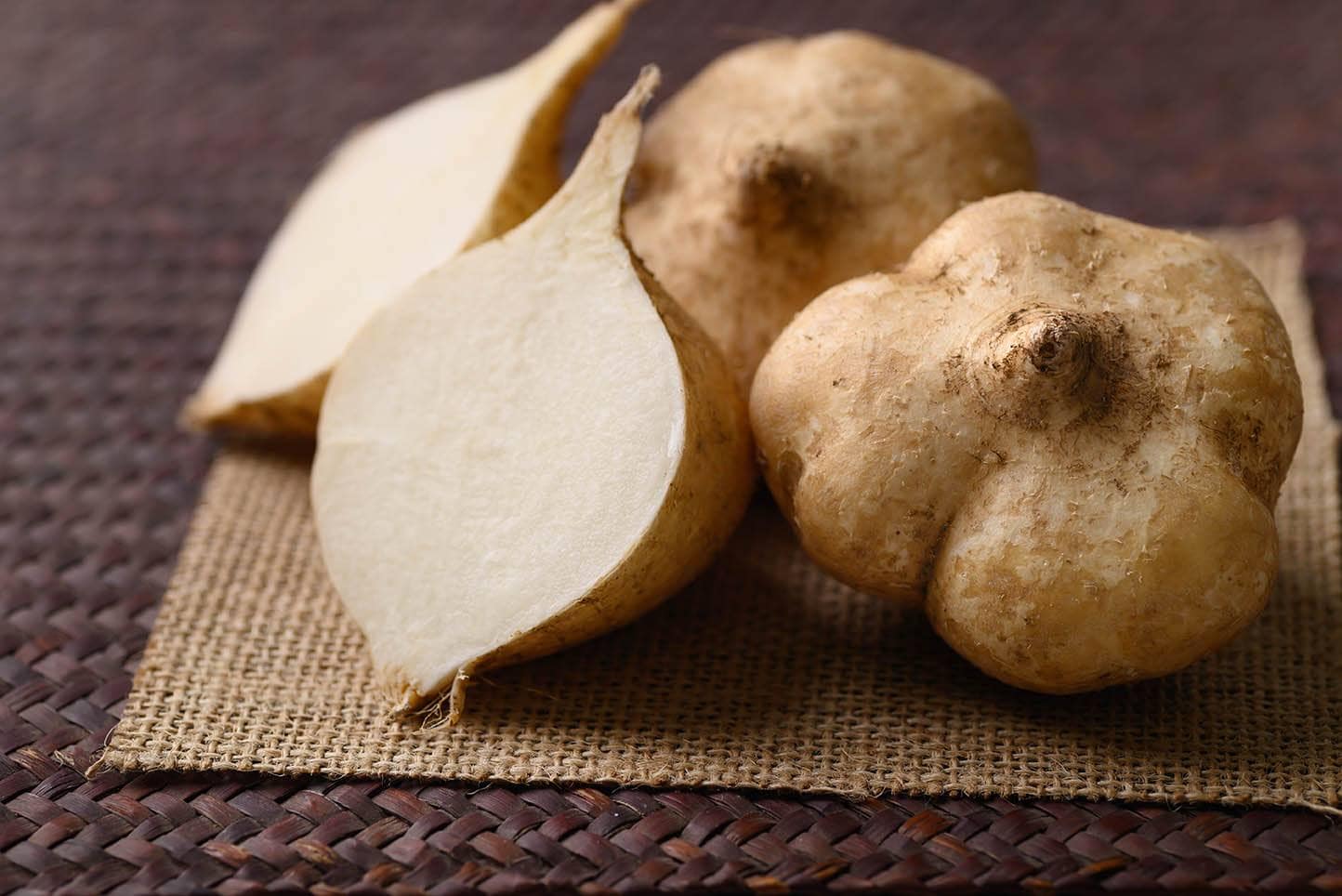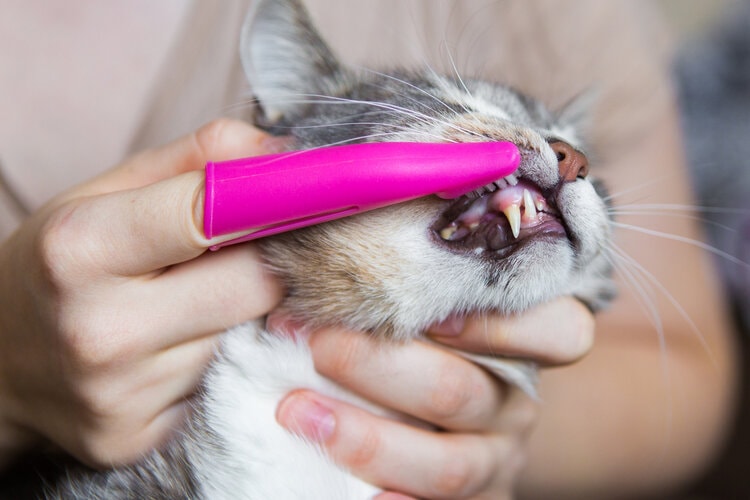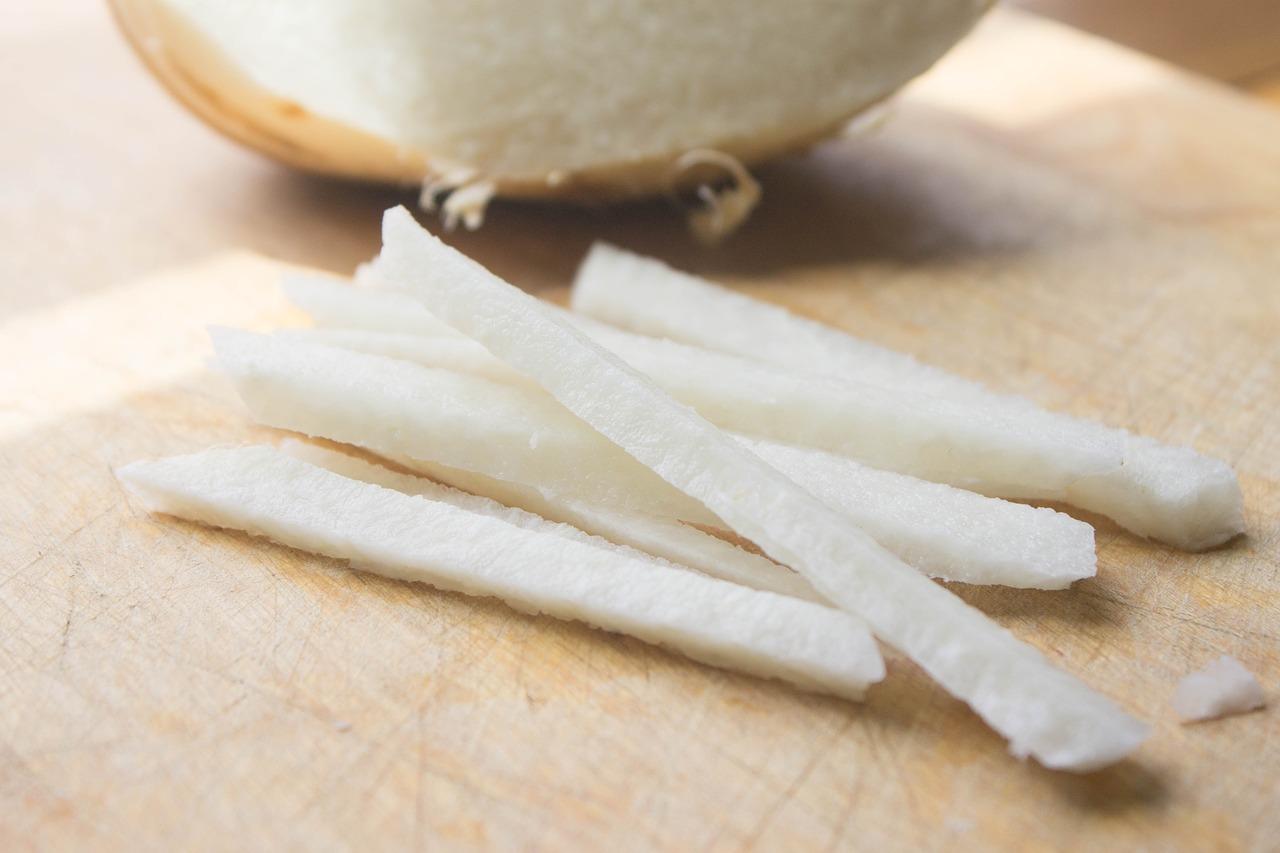- August 4, 2023
Can Cats Eat Jicama? Vet Approved Facts & FAQ



The information is current and up-to-date in accordance with the latest veterinarian research.
If you’re a cat owner and love exploring new foods for your feline friend, you may have wondered if cats can eat jicama. Jicama is a versatile root vegetable with a crisp texture and mild, slightly sweet taste. So, can our whiskered companions indulge in this delicious treat? The answer is yes! Cats can eat jicama, and it can be a healthy addition to their diet provided that it’s fed in small amounts and only on occasion. However, it is important to note that the seeds are toxic.
Still curious about jicama? Here, we discuss why it can make a fantastic occasional snack for our beloved feline friends if prepared and presented properly!

What Is Jicama?
Jicama (Pachyrhizus erosus), also known as Mexican turnip or yam bean, is a root vegetable native to Mexico. It belongs to the legume family and has been cultivated for centuries due to its culinary and nutritional benefits. Jicama has a round, bulbous shape with tan-colored skin that is thick and rough. Its flesh is juicy, crunchy, and white in color, resembling the texture of an apple or water chestnut. Jicama is widely appreciated for its refreshing taste and versatility in various cuisines.

Can Cats Eat Jicama?
Yes, anecdotally cats can eat jicama, but it should be served in moderation. Jicama is thought to be safe for cats to consume, but it should never be a primary food source or a replacement for a balanced diet. It’s essential to remember that cats are obligate carnivores, meaning their bodies are designed to thrive on a diet primarily composed of animal protein. While jicama can be a healthy and enjoyable treat, it should only be offered in small amounts as an occasional snack, if at all. We were not able to find scientific studies that looked into the toxicity of jicama in cats but it is a well-established fact that the seeds are toxic.
Is Jicama Healthy for Cats?
Jicama offers several health benefits for cats. It is a low-calorie vegetable that is rich in dietary fiber, which can help promote healthy digestion and prevent constipation. The high water content in jicama can also contribute to proper hydration, especially for cats that may not consume enough water on their own. Furthermore, jicama contains essential vitamins and minerals, including vitamin C, potassium, and magnesium, which can support overall feline health.
As a nutritional powerhouse, jicama is low in calories, with approximately 38 calories per 100 grams. This makes it an ideal snack for cats that need to watch their weight. It is also high in dietary fiber, providing about 4.9 grams per 100 grams. Fiber is crucial for maintaining a healthy digestive system and can aid in preventing hairballs.
Additionally, jicama contains a good amount of vitamin C, which acts as an antioxidant and supports immune function. Other beneficial nutrients in jicama include potassium, magnesium, and folate.
Potential Benefits of Jicama for Your Cat
In addition to its nutritional value, jicama potentially offers several benefits for cats. Its crunchy texture can help promote dental health by reducing plaque and tartar buildup on their teeth. Chewing on jicama can also provide mental stimulation and alleviate boredom for indoor cats. Furthermore, the high water content in jicama can contribute to overall hydration and urinary tract health.

Wait, Aren’t Cats Carnivores?
Yes, cats are indeed obligate carnivores. Their bodies are adapted to thrive on a diet rich in animal protein. However, it’s important to note that offering small amounts of safe fruits and vegetables, like jicama, can provide some added variety and nutritional benefits to their diet.
While cats may not derive significant nutritional value from plant-based foods, occasional treats like jicama can be a healthy addition to their carnivorous diet.
Risks of Eating Too Much Jicama
Although jicama is generally thought to be safe for cats, it’s crucial to offer it in moderation. As mentioned earlier, cats are obligate carnivores and thrive on an animal protein diet. Feeding too much jicama or any other food in excessive amounts can lead to digestive upset, including diarrhea or bloating.
Additionally, jicama should never be a substitute for a balanced cat food diet, as it lacks essential nutrients like taurine that are critical for feline health. Always remember to consult your veterinarian before introducing any new food into your cat’s diet.
How to Properly Feed Jicama
When feeding jicama to your cat, it’s important to prepare it properly. Start by thoroughly washing the jicama to remove any dirt or residues. Peel off the thick skin, as it can be challenging for cats to chew and digest. Cut the jicama into small, bite-sized pieces to prevent choking hazards. It’s advisable to offer jicama as a treat or part of a balanced snack rather than a standalone meal. Monitor your cat’s response to jicama and discontinue feeding if any adverse reactions occur.


Frequently Asked Questions
Do Cats Like Eating Jicama?
While every cat is unique and may have individual preferences, some cats may enjoy the taste and texture of jicama. Cats are known for their discerning palates, and their taste preferences can vary widely. Some cats may find the crunchy texture of jicama appealing, while others may not be as interested.
It’s always a good idea to offer a small piece of jicama to your cat and observe their reaction. If they show interest and enjoy it, you can continue offering jicama as an occasional treat. However, if they show disinterest or dislike, it’s best to respect their preferences and explore other snack options that they may find more enticing.
Remember, it’s important to prioritize your cat’s enjoyment and well-being when introducing new foods into their diet!
What Other Root Vegetables Can Cats Eat?
If you’re looking to expand your cat’s vegetable repertoire, several other root vegetables are safe for feline consumption. Carrots and sweet potatoes are among the root vegetables that cats can enjoy in moderation. Remember to cook them thoroughly to make them more easily digestible for your cat. Always introduce new foods gradually and monitor your cat’s response to ensure they tolerate them well.

Final Thoughts
Although obligate carnivores, cats can anecdotally safely eat jicama as an occasional treat. Jicama offers a crunchy, refreshing snack option for our feline friends and provides some nutritional benefits, including dietary fiber, vitamins, and minerals.
It’s important to remember that jicama should never replace a balanced diet of high-quality cat food. Always consult with your veterinarian before introducing any new foods into your cat’s diet and remember to offer jicama in moderation. With these considerations in mind, you can add a touch of variety and enjoyment to your cat’s snacking experience!
Featured Image Credit: Nungning20, Shutterstock
Tags
What do you think?
Related Articles

New Puppy Checklist: Gear You’ll Need for Your New Dog
Getting a new puppy is really exciting, but before you welcome them home, it’s important to prepare your space for them. Since puppies need a

How Big Do Mini Poodles Get? Vet Reviewed Average Weight & Growth Chart – Dogster
The information is current and up-to-date in accordance with the latest veterinarian research. Learn more » When you buy a Miniature Poodle, you might not

Can Police Dogs Smell Nicotine? Vet Verified Facts & Info – Dogster
The information is current and up-to-date in accordance with the latest veterinarian research. Learn more » While cigarette sales have been declining steadily for decades,

How Old Is 5 in Dog Years? Vet-Approved Guide to Each Size of Dog – Dogster
The information is current and up-to-date in accordance with the latest veterinarian research. Learn more » A common method for calculating a dog’s age is

